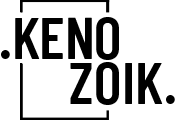Marketing Process: A Step-by-Step Guide to Success
Understanding the Marketing Process: A Step-by-Step Guide to Driving Business Growth
The marketing process is a systematic approach to creating, communicating, and delivering value to customers while achieving business objectives. It involves strategic planning, execution, and continuous optimization. This guide breaks down the marketing process into actionable stages and highlights how agencies like BrandLogiq streamline each step for businesses in Nepal.
1. What is the Marketing Process?
The marketing process is a cyclical framework that includes:
- Research: Understanding market needs.
- Strategy: Defining goals and tactics.
- Implementation: Executing campaigns.
- Monitoring: Tracking performance.
- Optimization: Refining strategies.
This process ensures alignment between customer demands and business goals.
2. Step 1: Market Research & Analysis
Objective: Gather data to identify opportunities and challenges.
- Methods:
- Surveys, focus groups, and competitor analysis.
- SWOT analysis (Strengths, Weaknesses, Opportunities, Threats).
- Outcome: Insights into customer behavior, market trends, and gaps.
Example: BrandLogiq’s Branding Agency conducts in-depth market research to uncover unique positioning opportunities for businesses.
3. Step 2: Segmentation, Targeting, & Positioning (STP)
- Segmentation: Divide the market into groups (e.g., demographics, geographics).
- Targeting: Select the most profitable segments.
- Positioning: Craft a brand image that resonates with the target audience.
Example: A tourism company partners with BrandLogiq’s Digital Marketing Agency in Nepal to target adventure travelers through tailored social media campaigns.
4. Step 3: Develop the Marketing Mix (4Ps)
- Product: Design offerings that solve customer pain points.
- Price: Set value-based pricing strategies.
- Place: Choose distribution channels (e.g., e-commerce, retail).
- Promotion: Plan communication tactics (ads, content, PR).
Example: BrandLogiq’s Influencer Marketing Agency integrates influencers into promotional strategies for authentic reach.
5. Step 4: Implementation & Campaign Execution
Objective: Launch campaigns across selected channels.
- Digital Tactics: SEO, social media ads, email marketing.
- Traditional Tactics: Print ads, events, billboards.
- Budget Allocation: Distribute resources for maximum ROI.
- Example: BrandLogiq’s Digital Marketing Agency executes multi-channel campaigns, ensuring consistent messaging. For businesses aiming to scale organically, consulting an experienced SEO Expert can significantly improve search rankings and inbound traffic through tailored technical and on-page strategies.
6. Step 5: Monitor Performance & Analytics
Key Metrics:
- Digital: Website traffic, conversion rates, click-through rates (CTR).
- Sales: Revenue growth, customer acquisition cost (CAC).
- Engagement: Social media interactions, email open rates.
Tools: Google Analytics, CRM systems, social media insights.
7. Step 6: Evaluation & Optimization
Actions:
- Identify underperforming campaigns and reallocate budgets.
- A/B test creatives, CTAs, and landing pages.
- Update strategies based on customer feedback and trends.
Example: BrandLogiq uses data from past campaigns to refine SEO and influencer strategies for higher ROI. Businesses that work closely with an SEO Expert can better identify ranking gaps and capitalize on evolving search trends to stay ahead of competitors.
8. The Role of Branding in the Marketing Process
A strong brand identity:
- Builds recognition and trust.
- Differentiates businesses in crowded markets.
- Supports consistent messaging across all stages.
Example: BrandLogiq’s Branding Agency in Nepal develops visual and narrative identities that anchor the entire marketing process.
9. Why a Structured Process Matters
- Efficiency: Reduces wasted resources.
- Consistency: Strengthens brand recall.
- Adaptability: Enables quick pivots based on data.
10. BrandLogiq’s Expertise in Streamlining the Marketing Process
From research to optimization, BrandLogiq offers end-to-end solutions:
- Research & Strategy: Data-driven insights for informed decisions.
- Creative Execution: Compelling branding and content.
- Digital Mastery: Targeted campaigns via Digital Marketing Agency.
- Influencer Integration: Authentic promotions through Influencer Partnerships.
Conclusion: Mastering the Marketing Process
A well-defined marketing process transforms random efforts into measurable growth. By partnering with BrandLogiq, businesses in Nepal gain the tools and expertise to navigate each stage—from initial research to post-campaign optimization—ensuring sustainable success. If your goal includes dominating search visibility, collaborating with a proven SEO Expert can bring precision and results to your marketing execution.


